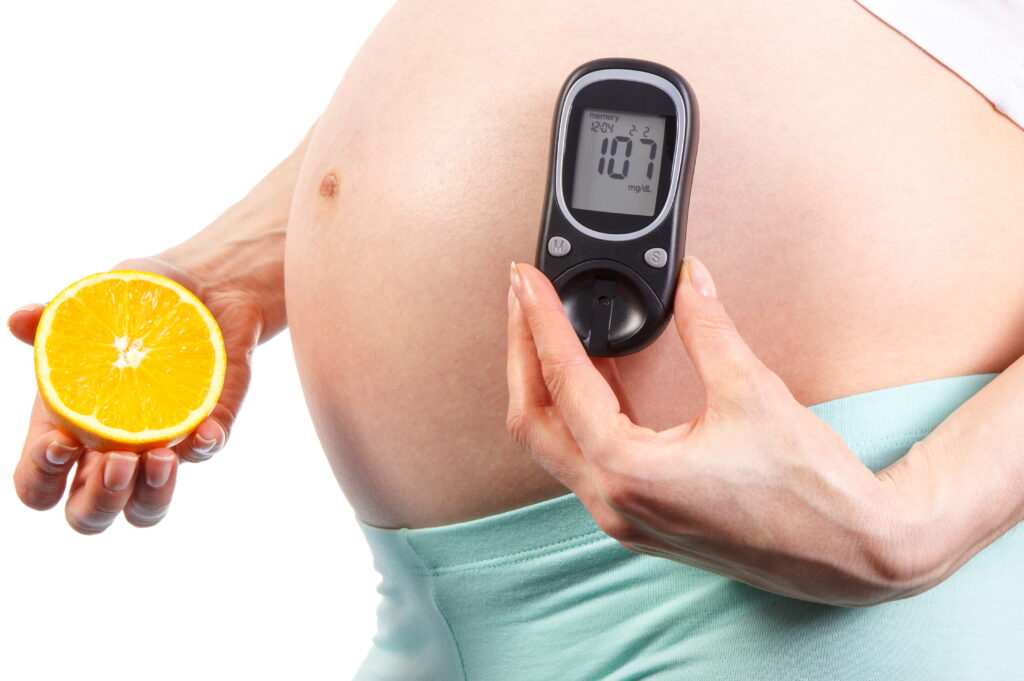blog tambre
How does diabetes impact fertility and pregnancy? Everything you need to know

Table of contents
Diabetes has truly become a pandemic, affecting millions of people around the world. In Europe, the prevalence has reached 9.2% of the adult population, and in Spain, more than five million people live with this chronic disease.
Diabetes is known to cause serious complications if not managed properly, but one thing that is often overlooked is how it affects fertility. Did you know that diabetes can complicate conception, in both men and women, and increase the risks during pregnancy?
In this article, we will delve into how this disease affects fertility and how to minimise the risks and achieve a healthy pregnancy.
What is diabetes?
Before getting into its effect on fertility, it is important to remember that diabetes is a chronic disease that affects how the body uses glucose, our main source of energy. There are different types of diabetes:
- Type 1 diabetes. An autoimmune disease, accounting for about 5-10% of diabetes cases, where the body attacks the cells that produce insulin, forcing people to rely on daily injections of this hormone.
- Type 2 diabetes. This is the most common type. It accounts for approximately 90% of all diabetes cases in the US and Europe. Type 2 diabetes is often associated with insulin resistance, which is frequently linked to factors such as obesity. Although type 2 diabetes can be controlled with diet, exercise and medication, sometimes it requires the use of insulin.
- Gestational diabetes. This type develops during pregnancy, usually due to hormonal changes and weight gain. Although it normally disappears after delivery, it leaves women with an increased risk of developing type 2 diabetes in the future.
Women diagnosed with gestational diabetes require careful monitoring of diet, exercise and sometimes insulin.
Even though gestational diabetes often disappears after giving birth, women with gestational diabetes are at increased risk of developing type 2 diabetes in the future.
How does diabetes affect fertility?
Properly managed diabetes does not necessarily affect fertility in either men or women. However, if not properly supervised, diabetes can cause fertility problems, affecting the hormones that regulate a woman’s menstrual cycle and potentially lead to problems during pregnancy. In men, diabetes can reduce testosterone levels, affecting libido and sperm production.
Diabetes and female fertility
When considering diabetes-related infertility, we generally refer to type 2 diabetes. This can cause ovulation disturbances, especially if associated with obesity or polycystic ovary syndrome (PCOS), a condition that causes menstrual cycle irregularities and complicates conception. The good news is that, if your blood glucose is well controlled and you follow healthy lifestyle habits, many women with diabetes have the same chances of conceiving as those without the disease.
Diabetes and male fertility
In men, poorly controlled diabetes can reduce sperm quality and quantity. Furthermore, damage to nerves and blood vessels associated with high blood sugar levels can lead to erectile dysfunction, complicating sexual intercourse.
Similar to the situation in female patients, good glycaemic control can significantly improve the situation.
“Pregnancy is always an exciting challenge, but with diabetes, the journey may be a little more complex”
Pregnancy in women with diabetes
Pregnancy is always an exciting challenge, but with diabetes, the journey may be a little more complex. Women with diabetes need to make sure they have their blood glucose under control before getting pregnant, as high blood sugar levels can increase the risk of complications such as miscarriage, larger babies at birth or premature delivery. In addition, mothers may face complications such as pre-eclampsia or hypertension.
The advice experts give is clear: plan your pregnancy in advance and under strict medical supervision. According to the United Kingdom National Health Service, the best time to pursue pregnancy is when glycosylated haemoglobin levels are below 6.5%.
Fertility treatments for people with diabetes
When a couple with diabetes is having difficulty conceiving naturally, fertility treatments may be an excellent option. The key is to monitor blood glucose throughout the process to increase the chances of success.
At Tambre, for instance, we offer personalised treatments including ovarian stimulation, artificial insemination (AI), in vitro fertilisation (IVF) and advanced techniques such as intracytoplasmic sperm injection (ICSI).
The good news is that, as long as glucose levels are within the right parameters, the success rates of these treatments are similar to those of people without diabetes.
Diabetes is not necessarily an overwhelming obstacle when it comes to fertility and pregnancy. With good glycaemic control and the support of medical professionals, people with diabetes can fulfil their dream of starting a family safely and successfully.



